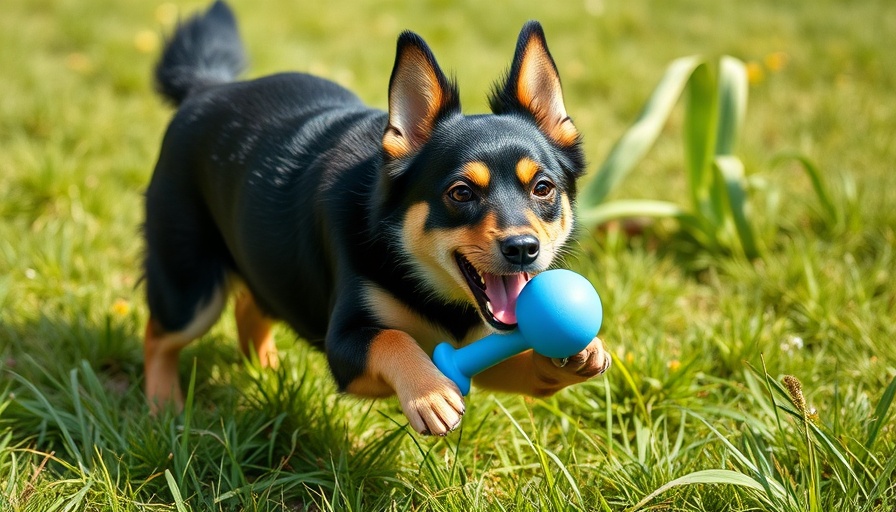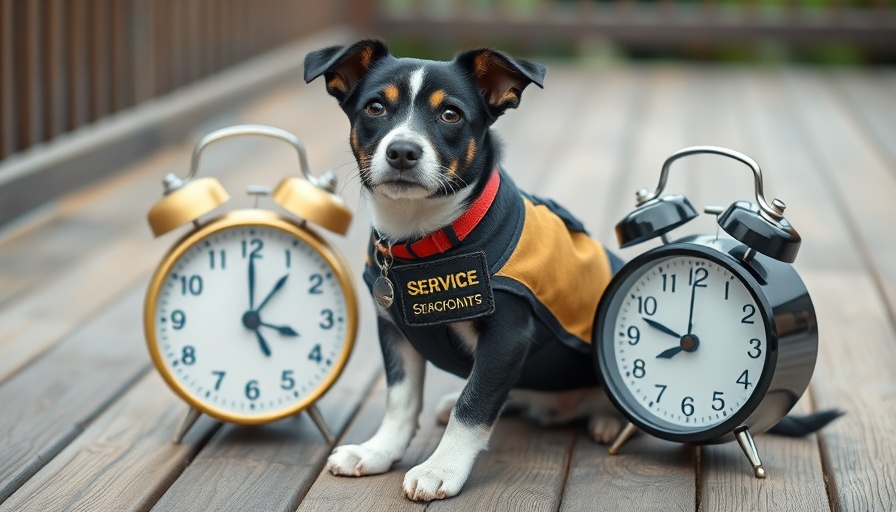
Why Play Matters in Service Dog Training
In the rigorous world of service dog training, integrating play isn't merely an added benefit—it's a transformative approach that can enhance learning and bolster the relationship between handler and dog. While essential tasks require precision, play serves as a crucial element that meets both emotional and physical needs for the canine partner.
Enhancing Task Training Through Fun
Service dogs perform many tasks that require precision and focus. Incorporating play into this training allows trainers to evoke desired behaviors while simultaneously fostering a positive emotional environment. For instance, utilizing fun games to teach retrieval not only makes training enjoyable for the dog but can also amplify their confidence level. When a dog learns to associate tasks with play, they become more open to tackling daunting or uncomfortable challenges, such as fetching objects with unusual shapes or textures. This playful approach not only enhances the dog's willingness to engage but also helps develop problem-solving skills.
Building Emotional Connections
Play isn’t just frivolous; it’s instrumental in creating positive emotional associations with the tasks a service dog must perform. By embedding games into the learning process, handlers can alleviate stress for both themselves and their dogs. This shared joy during training reduces the pressure often associated with mastering complex tasks, resulting in an enjoyable experience for the team. According to experts, integrating play can significantly enhance cognitive, emotional, and social development in both dogs and handlers.
Addressing Exercise Needs Efficiently
Many service dog handlers face challenges in meeting their dog’s exercise needs, especially if they have physical limitations themselves. This is where the dual benefits of play come into play—literally. Engaging in games can effectively exercise dogs while concurrently teaching them necessary skills. However, it's crucial that trainers advise handlers to balance exercise with training to avoid overexertion. Strategies that incorporate varied forms of play help in preventing behaviors that can arise from boredom or excess energy.
Fostering Stronger Bonds
The playful interactions between handler and dog not only bring joy but also cultivate a deeper bond. Handlers who experiment with various play styles, adjusting their communication methods to their dog’s responses, can find the right mix that creates a harmonious relationship. Play promotes mutual understanding and a sense of partnership that can be crucial in stressful situations, whether they are during training or when navigating public spaces together.
Reducing Stress in Public Settings
The challenges of public access work can be daunting for service dogs and their handlers. Incorporating play into this training can serve as a stress-reliever. Allowing a service dog to engage with a favorite toy during breaks can help alleviate anxiety tied to navigating new environments. Moreover, ensuring that these playful moments happen in safe spaces allows the dog to feel more relaxed and confident while performing their duties.
Adapting Play to Individual Needs
As emphasized in various training methodologies, understanding the unique play style of your dog is essential. Not every dog will respond to the same types of play; thus, handlers should observe their canine companions closely. Whether it’s fetching, tugging, or even playful wrestling, recognizing what excites your dog will enable a more effective training approach. This insight can also be particularly valuable when teaching difficult tasks, transforming what could be a stressful scenario into a fun opportunity for engagement.
In conclusion, play is not merely a diversion; it’s a vital aspect of service dog training that fulfills various functional and emotional roles. Handlers are encouraged to embrace play as an integral part of their training, ensuring both they and their dogs enjoy the journey while fostering a successful working partnership.
Take Action: Transform Your Training Approach
If you’re ready to deepen your relationship with your service dog through playful training methods, consider reaching out to local trainers or resources that specialize in integrating play into functional training. Empower your canine partner and make training both effective and enjoyable!
 Add Row
Add Row  Add
Add 




 Add Row
Add Row  Add
Add 

Write A Comment